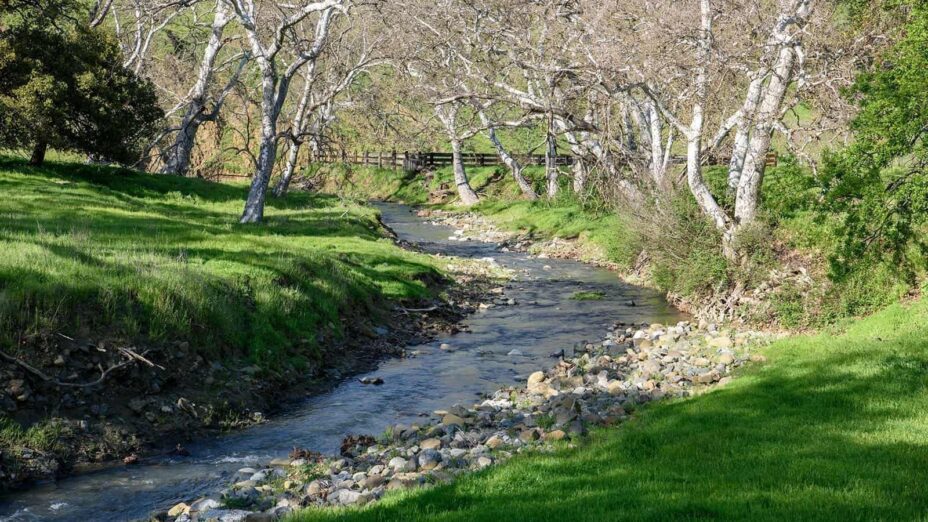
The Importance of Clean Water and Healthy Habitats
Riparian (streamside) habitats are home to a wide range of biodiversity; they’re particularly important in dry areas such as Mount Diablo.
During the summer, many migratory birds use our local streamside habitats as a refuge if they’re well shaded and have good populations of insects.
Native animals such as California red-legged frog rely on clean water from these habitats on Mount Diablo and surrounding areas; here, a healthy stream can support a whole ecosystem.
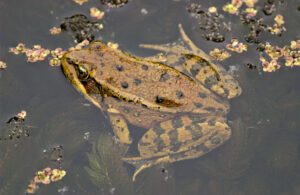
California red-legged frog. Photo by Scott Hein
Addressing the Challenges of Grazing
Over the years, we have been working on ensuring that the riparian habitats on our protected lands remain protected and unpolluted. We’re working to address some of the challenges that come along with allowing grazing on many of our lands for the purpose of invasive species management and fire abatement.
Unfortunately, the presence of cows too close to streams can degrade water quality through an overabundance of nitrogen, phosphorus, and harmful bacteria.
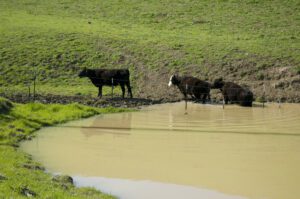
Photo by Scott Hein
Uncontrolled grazing of these areas would also result in soil erosion and dirt compaction along the creek bed, making it more difficult for native species to thrive. This erosion and compaction restricts the ability of plants roots to grow and adequately absorb nutrients.
If the health of the plants is impacted, every species that relies on them for food and shelter will be affected too.
Part of the practice of conservation grazing involves managing the location of the cattle and installing fencing to protect riparian habitats from pollution and trampling.
Grazing done properly decreases likelihood of major fires and lowers the proportion of invasive plants present.
We’re helping to ensure that cattle graze in locations where their presence will be beneficial to the environment.
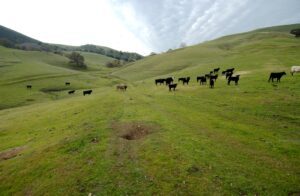
Photo by Scott Hein
New Fencing in Curry Canyon
Recently, our stewardship team installed 4,000 feet of fencing along Curry Creek and Marsh Creek to protect the creeks and their habitat from grazing.
The goal of this project was to ensure that the water that flows through our Curry Canyon Ranch property is uncontaminated and will promote the health of the wildlife that inhabit Mount Diablo.

New fencing is installed in Curry Canyon to keep cows out of Curry Creek. Photo by Sean Burke
Since the installation of this fencing, we’ve noticed a significant increase in the presence of native species such as the Alameda whipsnake!
This project was able to be completed thanks to the hard work of our stewardship team and committed volunteers.
Land management and conservation grazing are important parts of our Climate Action Plan; ensuring that water supplies are uncontaminated will also allow our lands to more effectively serve as wildlife refuges.

Alameda whipsnake. Photo by Scott Hein
Water Troughs: Not Just for Cows
In areas where grazing takes place, cows have been sharing their water troughs with Mount Diablo’s native species.
All sorts of animals including coyotes, lizards, amphibians, and squirrels have been seen using the water troughs. The troughs’ presence is particularly helpful during the dry summer months.
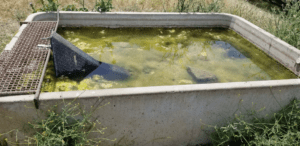
Water trough with wildlife ramp. Photo by Mike Anciaux
Our stewardship staff have even observed golden eagles using these troughs to take baths!
To help the animals who are using these troughs, we have installed wildlife ramps in our cattle troughs so that wildlife can freely exit the troughs if they fall in.
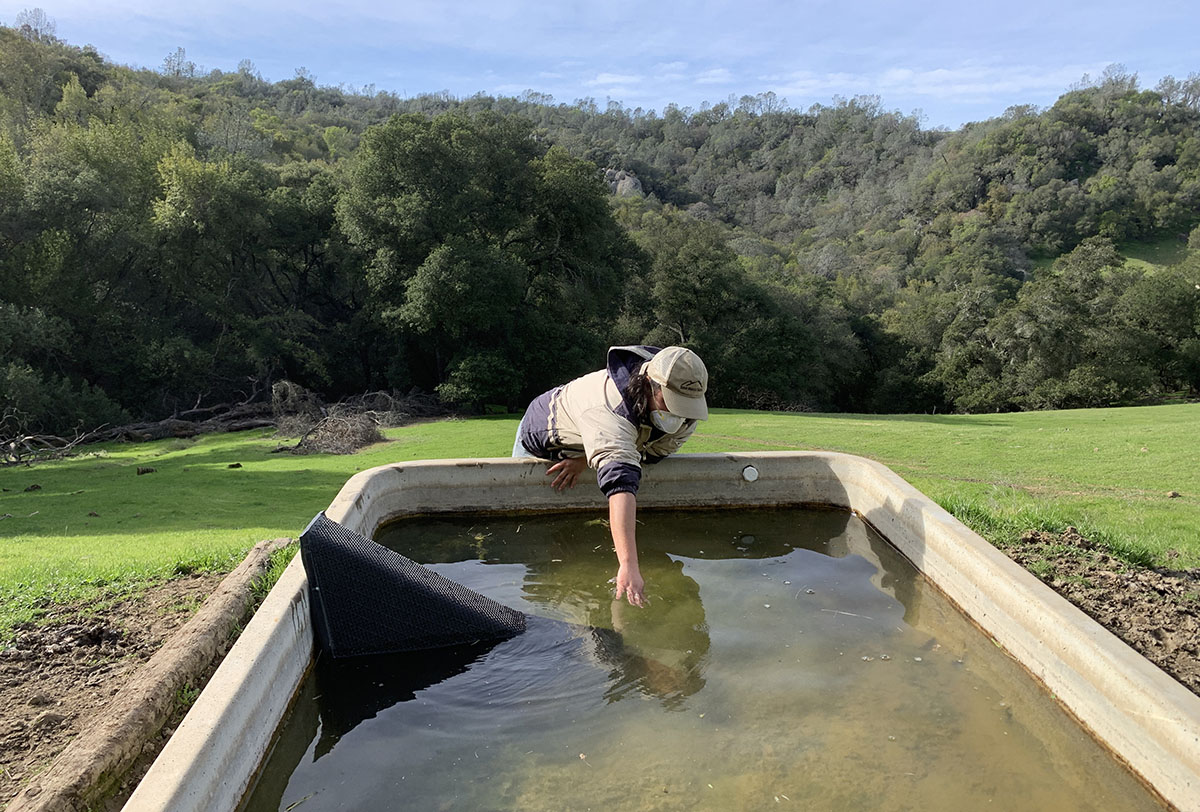
Roxana works on installing a wildlife ramp. Photo by Haley Sutton
Top photo: Scott Hein

